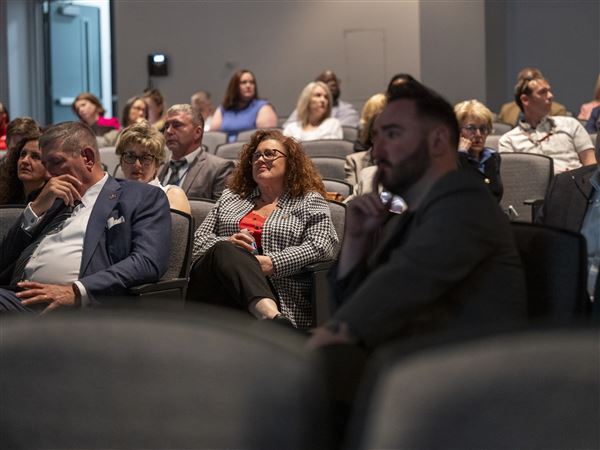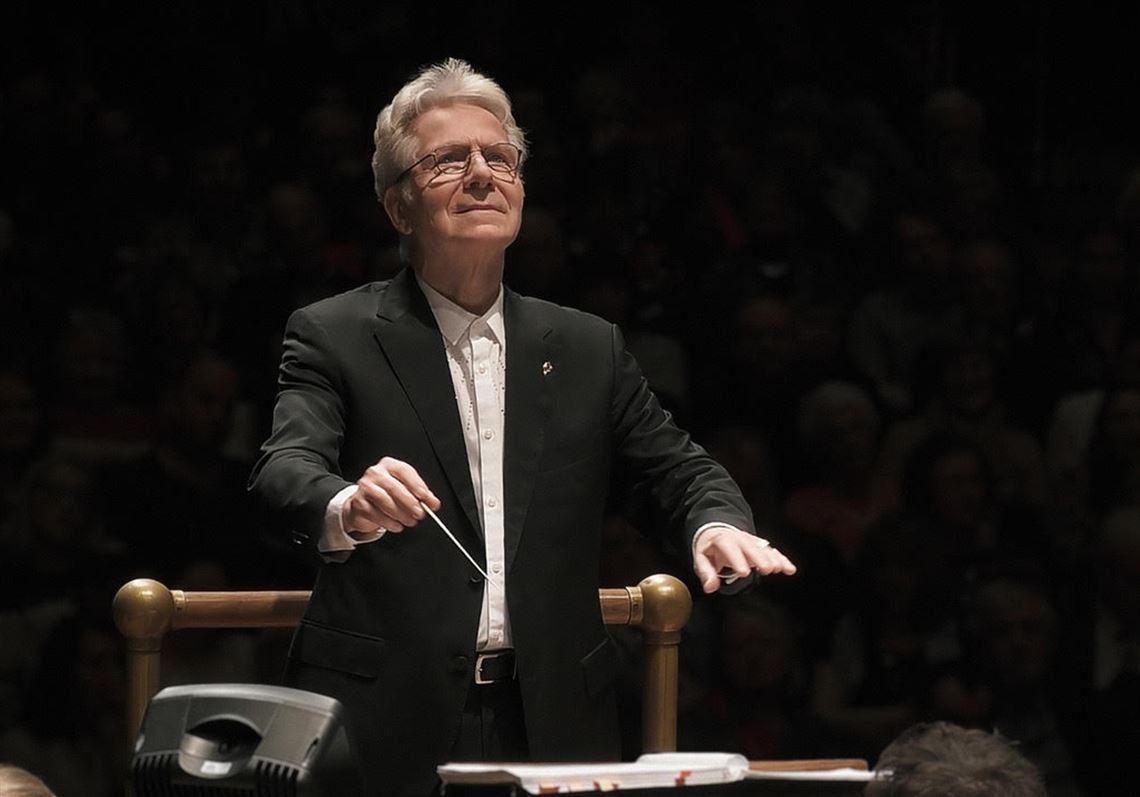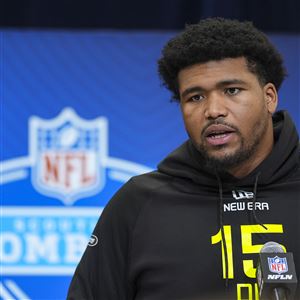World War II resulted in the death of tens of millions of people. Conductor John Mauceri says classical music was one of the war’s less-discussed casualties.
Mauceri, former conductor of the Hollywood Bowl Orchestra as well as Pittsburgh Opera, has written a book exploring war's effect on European and American musical development. “The War on Music: Reclaiming the Twentieth Century” (Yale University Press, $28) is the culmination of a lifetime exploring and interpreting the music of the prior century and its relationship with international conflict. The book goes on sale Tuesday.
Mauceri's premise is simple and intriguing: After Europe’s great composers fled to America during the war, Europe turned its back on them while America turned up its nose at classical music’s European roots. Many of these displaced composers were forced to make their livings composing for film, television and Broadway, which doesn’t carry the same cachet as writing concert music.
“I had been taught that they weren’t real composers, that they stole and imitated greater classical composers,” Mauceri said in an interview. “And here's the kicker: The foundational composers of Hollywood also appeared on Hitler’s list of degenerate composers, and that was just jaw-dropping.”
Today, interest in new “classical” music is low, as even devoted fans prefer to hear the older music of Beethoven, Tchaikovsky, Mahler and Strauss. But consider this: Richard Strauss was alive and composing well into the 20th century. Who carried on his legacy?
The great gap between classical and contemporary concert music isn’t large in terms of time, but rather in terms of style and aesthetic.
Mauceri posits a direct through line from the music of Wagner, considered one of classical music’s greatest geniuses, to the music of John Williams, who is best known for his film scores. In other words, writing music for the cinema was the natural evolution of composition, not the tortured serialism and avant-garde styles of the mid-century that filled concert halls for years.
“If the Nazis lost the war, do we not play the music Hitler banned?” Mauceri asks in his book.
Orchestral pop
The problem is twofold, he argues. Nazis burned books, looted paintings and bombed theaters. They also labeled numerous composers “degenerate,” banning public performances of their work. Some orchestras and chamber groups are exploring some of the formerly banned music, but little of it has broken through to the mainstream.
Across the ocean, Americans came to identify serialism and the avant-garde with being anti-Nazi and leaned into those sub-genres. This is the sort of modern music that causes most orchestra fans and casual listeners to scratch their heads or head for the hills.
Even die-hard classical fans are wont to roll their eyes whenever orchestras program world premieres or “modern” music, as contemporary orchestra music is often seen as too complex and impenetrable. These styles may once have been edgy and pushed the boundaries of what music could be, but the compositions have not aged well. The names of composers like Pierre Boulez, Alban Berg and Milton Babbitt are generally known only to those who have studied music with intensity.
Then again, the composers discussed in the book — Hindemith, Schoenberg, Weill and Korngold — weren’t beloved either, though Mauceri argues this had more to do with the critical discourse surrounding their music than the music itself.
“It took me 30 years to figure this out, but it had to do with the reaction,” he said. “If you look at what was being said about those four different composers, they were the most highly touted composers of the 1920s. They were considered wunderkinds! But then something happened to them, and that something was World War II.”
Manfred Honeck, music director of the Pittsburgh Symphony Orchestra, concurred. “Korngold is a wonderful composer, he has followed what Mahler implanted,” he said. “In my opinion he's underestimated, actually.”
Erich Wolfgang Korngold wrote the music for the 1938 classic “The Adventures of Robin Hood.” Paul Hindemith’s music occasionally crops up in a concert hall but nowhere near as often as it might have. Kurt Weill wrote the song “Mack the Knife” for one of his more famous opuses, “The Threepenney Opera,” while Arnold Schoenberg eventually synthesized his atonal language with a tonal style, including the gorgeous Violin Concerto, which sounds nothing at all like what most people expect an atonal work to sound like.
“For all its expressivity, Shoenberg knew that this non-tonal music (and his subsequent 12-tone music) was severely limited in what it expressed,” Mauceri writes. “There are no successful non-tonal comedies. ... His student [Alban] Berg’s two operas, ‘Wozzeck’ and ‘Lulu,’ are about torture, murder, mental derangement, sexual obsession and degradation.”
Bridge to the past
Mauceri’s book, written in dense but flowing prose, argues that overlooked composers should be reintegrated into concerts so that programs don’t jump from familiar names like Beethoven to unfamiliar names like Anton Webern and back.
The conductor and author calls it a “recalibration,” insisting that reconnecting orchestras with music long abandoned could remind listeners of the broadly important cultural role these institutions once played. There’s reasonable evidence for that, as concerts of film music or video game music draw huge, enthusiastic crowds to concert halls.
While some musicians and listeners might push back, saying “it’s not meant for the concert hall,” music has long served both purposes. There are popular Beethoven overtures still played today that were meant for the opera house, not the concert hall. And Wagner regularly cobbled suites of his opera music together.
“Cinematic music connects with people enormously,” Honeck said. “It's not primitive. It’s just good.”
No one has given up on orchestras, but the musical trajectory of the 20th century is one of slow separation between classical music and the public, as slowly eroding interest has indicated. Mauceri’s book proposes a new way to think about the previous century, arguing that it’s time to admit the mistakes caused by war and ensuing nationalism and reevaluate much of the music of the last 100 years.
“I wanted to tell a story of continuity,” he said. “Music is continuity. It’s a human invention we’ve always taken with us wherever we go. Take Hindemith, he wrote a Pittsburgh Symphony for the city’s bicentennial. People hated it at the time. But people hated ‘Carmen,’ and now look.”
Jeremy Reynolds: jreynolds@post-gazette.com or 412-263-1634; twitter: @Reynolds_PG. His work at the Post-Gazette is supported in part by a grant from the San Francisco Conservatory of Music, Getty Foundation and Rubin Institute.
First Published: April 21, 2022, 10:00 a.m.
Updated: April 21, 2022, 1:47 p.m.



















